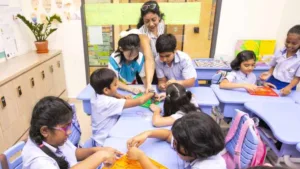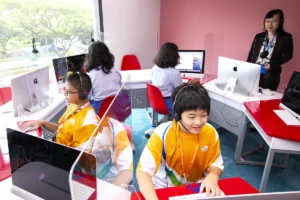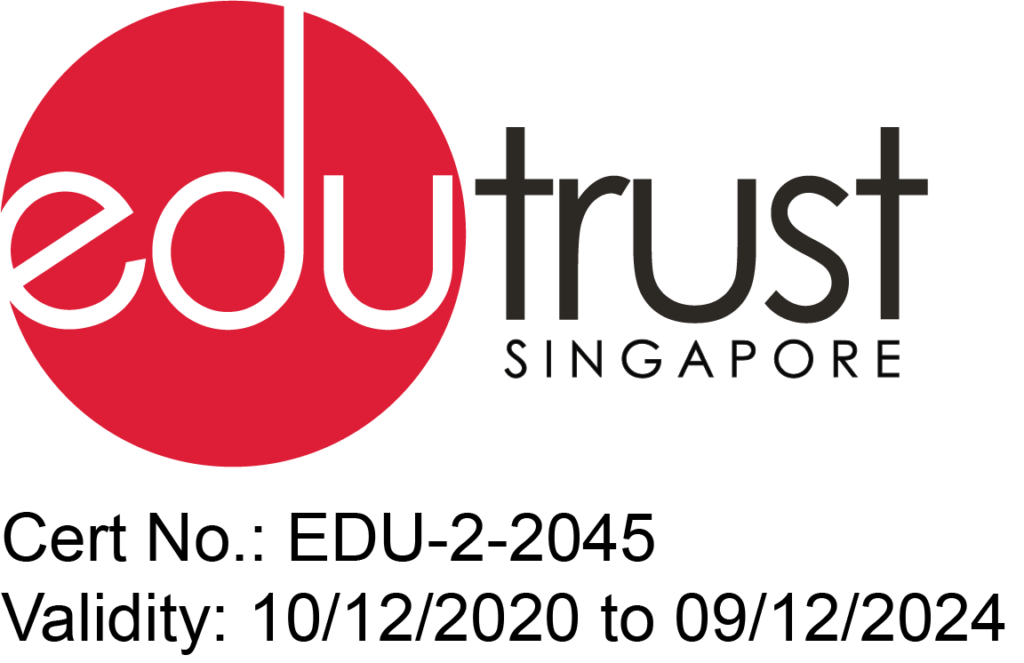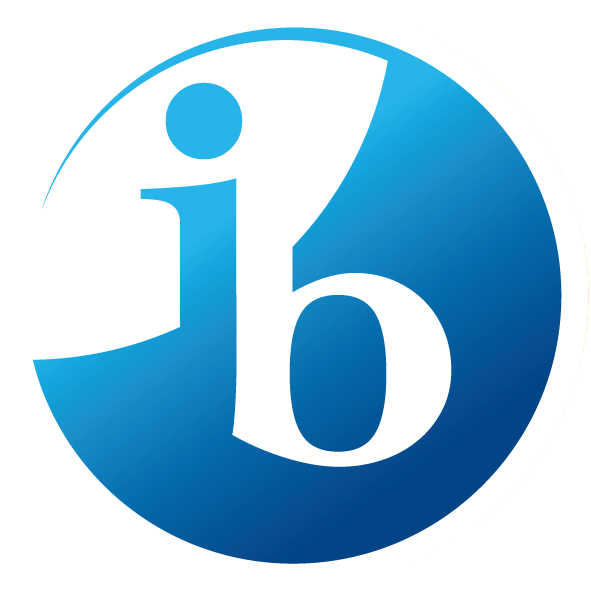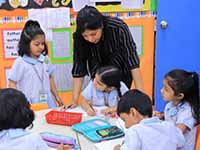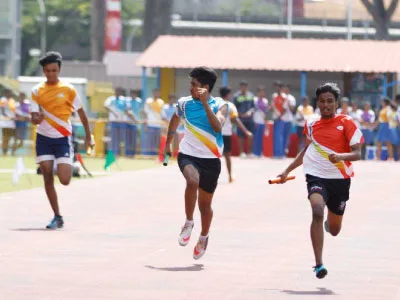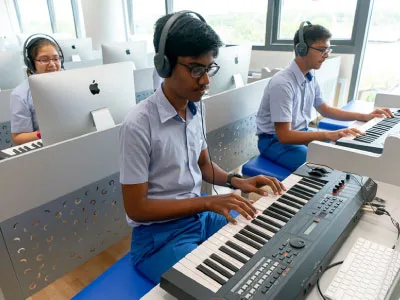The IB academic integrity policy is a guiding principle for all IB schools. The policy helps teachers and students to understand why it is important to produce original, genuine work, attribute credentials to the work produced, use information responsibly and follow ethical examination practices.
Integrity is a key feature of the IB Diploma Programme (IBDP) to maintain fairness to all DP students, establish trust and credibility for the programme, and encourage students to develop respect for others. Both IBDP students and parents benefit from understanding the policy.
Students who act with integrity and behave ethically are equipped to successfully transition from secondary school to university education, and then the workforce. Teachers who follow the policy exercise professional integrity as they train future leaders. Parents who encourage their children to be honest raise citizens who are adept in making the right choices.
For these reasons, we strongly emphasise on academic honesty and integrity at GIIS. Learn more about why these traits matter for IBDP students.
Understanding Academic Integrity
Students, teachers and parents are expected to understand and honour the academic integrity in IB. Here are the fundamental expectations and consequences.
Student expectations: Each student must independently complete original work while conducting research and taking assessments. They should resist any pressure as they practise integrity at all times, under all circumstances.
During independent research, these secondary school students are expected to avoid plagiarism, collusion and double dipping as they complete assignments.
● Plagiarism: copying text from an existing source or not correctly referencing sources in the body or bibliography.
● Collusion: completing assignments with help from peers rather than independently.
● Double Dipping: For example, using the same topic for the Extended Essay (EE) and Internal Assessment (IA).
When taking exams, students shall not use any smart device, such as a laptop, smartwatch, or iPad, to access the internet or any notes or documents. Also, students shall not make notes or take away examination papers from the classroom.
After the exams, students may not share questions or answers with anyone anywhere for at least 24 hours to avoid unfair advantage to students in other countries or time zones.
Also read: AI in education: Challenges and benefits of ChatGPT
School expectations: Each IBDP teacher will undergo training to fully understand the IB’s guidelines on academic integrity. They will instruct students to follow the guidelines and regularly discuss expectations with children and parents.
Likewise, staff will monitor students’ work and proctor exams. Finally, school staff and administrators will enforce consequences if there are any infractions.
Parent expectations: Parents will cooperate with the school when it comes to supporting and guiding their wards to adhere to IB’s academic integrity policy.
The idea is to help parents understand that they have a role to play in modelling good behaviour to promote the culture of academic honesty.
Consequences: Despite the expectations set in place, academic misconduct remains a possibility. As an instance, students may unintentionally end up duplicating Internal Assessment and EE topics.
In such a case, it’s the school’s responsibility to guide, warn and take appropriate actions. The school will take these situations seriously, and offer warnings and counselling based on the circumstances.
IB’s stand on Artificial Intelligence tools
The IB recognises that artificial intelligence (AI) tools have become essential in academics. Students can currently use tools like spelling and grammar checkers, translation software, calculators and ChatGPT to improve their writing skills, learn more about current lesson topics or create study plans.
Because AI is here to stay, the IB has mandated students to use AI software ethically and clearly mention the use of AI in their content.
Although, students must be aware that the IB does not consider any work produced – even if it’s only in parts – by such AI-based writing assistant tools to be their own. Therefore, it must be mentioned by the students in their work if they have used an AI-generated text, image or graph.
Moreover, the software used must be credited in the body of the text, and also appropriately referenced in the bibliography. This is to ensure that students do not misrepresent content as their own if it is created with the help of AI. This would otherwise be taken as a form of academic dishonesty.
Here are some recommendations for the students:
● Before writing a piece of work, it would benefit students to find research material, and it is entirely reasonable to use a search engine for research. This will help them to gain ideas, and expand on those ideas to shape their arguments.
● When drafting their essays, it will benefit students if they take reference from a good essay that is strong in its structure and arguments. It’s acceptable to do so as long as students are made to understand that good structures and coherently supported arguments are to be used only as reference, and not to be copied.
● Students should be encouraged to ask the software research questions rather than asking for the essay titles, and then explore the sources that AI tools provide. This is to ensure that students have the ability and understanding to explore any inherent bias in their search results.
How GIIS practises Academic Integrity
As an IB World School since 2005, GIIS believes, “upholding academic honesty helps to ensure that all students have an equal opportunity to demonstrate the knowledge and skills they acquire during their studies.”
Academic integrity is an important aspect of teaching and learning at GIIS. As part of GIIS’ academic honesty policy, the school has the responsibility to:
“structure the curriculum in a manner that allows students to develop the habits of academic honesty over time, ensure that students adhere to the basic principles of academic honesty, all members of the school community understand the value of academic honesty, incidents of academic dishonesty are dealt with in a manner appropriate to the assessment practices of the IB programme in question, and promote a consistent approach to citation by the use of one common systems.”
Students: With a solid foundation in integrity, we prepare children for the rigours of university and the workforce. Beginning in the PYP, children are trained to follow our academic honesty policy and practise integrity during instructional and free time.
Also, we provide detailed and extensive timelines that require students to cite every idea, record each source and write original sentences as they complete assignments a little bit at a time.
Furthermore, IBDP students use a citation or bibliography tool like MLA8 as they maintain a log of sources they will submit alongside the final paper. And we encourage students to study daily for exams rather than cram before test day.
Teachers: All new teachers undergo an extensive onboarding process. During this time, they learn about the IB’s academic integrity policy and GIIS guidelines. Then, teachers at all levels can use the same language and same rules as they reiterate the honesty policy before exams and assessments and throughout the year.
We also train teachers to use Turnitin, a software application that checks for plagiarism and tells us what percentage of a document is original. Our teachers also confirm originality in four ways.
1. Watch students develop the submission over several weeks.
2. Ask children to explain their work and the concepts clearly and with confidence.
3. Require source references in the body and the bibliography for unoriginal quotes, ideas and claims.
4. Confirm that the final submission is on par with the child’s ability.
Parents: We share our policy and expectations during parent orientation and in our student handbook. And we encourage parents to communicate openly at home, model the ethical use of AI tools, and help their children enjoy school. Through ongoing conversations and modelling, parents can help children achieve their full potential.
Consequences: Warnings are the first step to academic misconduct. School teachers or administrators will meet with the student to discuss the potential violation and notify parents.
Counselling can help us determine why a child did not follow the honesty policy and uncover underlying concerns or challenges. For example, a child may worry about failing an exam, struggle with peer pressure, have poor time management skills, or face learning difficulties. We can use this knowledge to offer helpful interventions and prevent future problems. Finally, a student’s assessment or submission may be withheld.
Work together to establish Academic Integrity
Academic integrity is an essential requirement for a fair learning environment. We achieve these goals if all stakeholders work together. At GIIS, we start with an ethical school culture each teacher reinforces.
Children are also responsible for discovering the value of integrity and practising this character trait. Likewise, parents can teach ethics and honesty at home. This would help schools to measure the progress of each child correctly as the children deliver outcomes based on their knowledge and strengths. This would, in return, aid students to understand their strengths and weaknesses, helping them to step into the future with confidence.
If you are keen to know more about the IB Diploma Programme at GIIS, please contact our friendly admissions counsellors.



